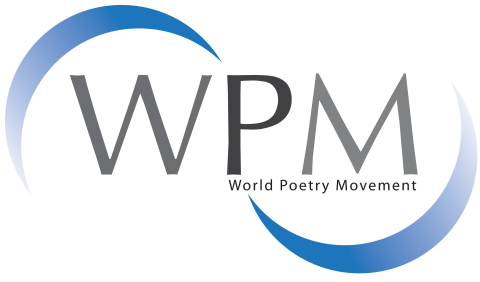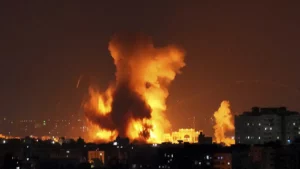The poem Six August by the Japanese poet Toge Sankishi, a survivor of the Hiroshima genocide, reflects the terror experienced by the victims of the first American nuclear bomb dropped on the civilian population of a country on August 6, 1944.
The poet reveals the destruction and death in the city, while asking whether humanity will learn from the tragedy accumulated over the centuries and avoid the use of nuclear weapons to resolve political conflicts.
“can we forget that flash?
suddenly 30,000 in the streets disappeared
in the crushed depths of darkness
the shrieks of 50,000 died out
when the swirling yellow smoke thinned
buildings split, bridges collapsed
packed trains rested singed
and a shoreless accumulation of rubble and embers – Hiroshima
before long, a line of naked bodies walking in groups, crying
with skin hanging down like rags…”
Poetry is a powerful medium for expressing feelings and thoughts that emerge at the prospect of nuclear war. We need to reflect on the need to preserve life. The peace and security of the world, like existence, are fragile.
Today we can be at peace in our home or in a park. But at any moment a final war could break out and destroy the known world. Do human beings love life enough to defend it? Poetry comes to their aid.
The possibility of nuclear war and its potential to wipe out life on Earth has been brought into sharp focus once again by the events in Ukraine. As we understand the horrors of radiation and fire, we cling to the hope of a final settlement between mortal enemies. Poetry is a powerful tool to raise awareness of the need to avoid total conflagration and to work for a peaceful present and future.
But it is not only extreme and violent nuclear radiation that can end human life. There are other modalities, such as the unstoppable increase in the earth’s temperature, due to greenhouse gas emissions, which can alter ecosystems and make species extinct, and the process of uncontrollable growth of the desert.
The contamination of the elements by chemicals both seriously affects the quality of ecosystems and reduces the ability of species to survive and reproduce.
These looming catastrophes, coupled with the likelihood of the emergence of new direct and deadly pandemics, the malevolent use of biotechnology, or a planet-shattering response to continued human aggression, may bring an end to life on Earth.
Unity of Poets
The unity of poets is necessary to achieve world peace and defend life. Poetry has a power to connect people by creating empathy and understanding between different peoples, cultures and languages.
Through thousands of pedagogical processes poetry is influencing human beings to learn a new language and a new relationship to the environment and to each other. Poets use language to break down barriers and to promote unity in the world in order to give new meaning to the value of existence.
Poetry also fights for the realization of social justice and human rights. Poets express their outrage at violence and oppression and call on the world to stand up to the powers that be.
Finally, poetry is a manifest and powerful form of connection to the beauty and vitality of the natural world. Poets contribute through their organizational forms and poetic actions to protect the environment and defend life in all its forms.
The alliance between poets is essential to achieve a peaceful, just and sustainable world. When poets work together in harmony, they can create a vigorous and transformative movement that will have a lasting impact on the world and awaken the mutual and ultimate solidarity of peoples.
It is for these reasons that for twelve years’ poets from many countries have scaled a process to found and develop the World Poetry Movement, a global community of poets that will hold its first Congress in Medellin and Caracas between 13 and 18 July 2023, attended by delegates from all continents, where it will approve its Strategic Plan 2023-2028.se of the planet to the constant aggression of human beings, may bring an end to life on Earth.




